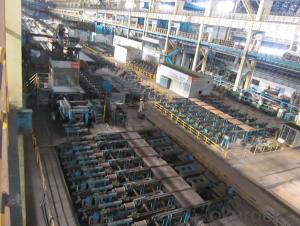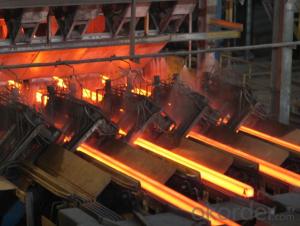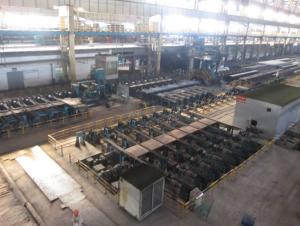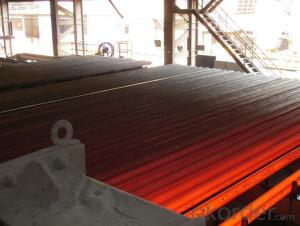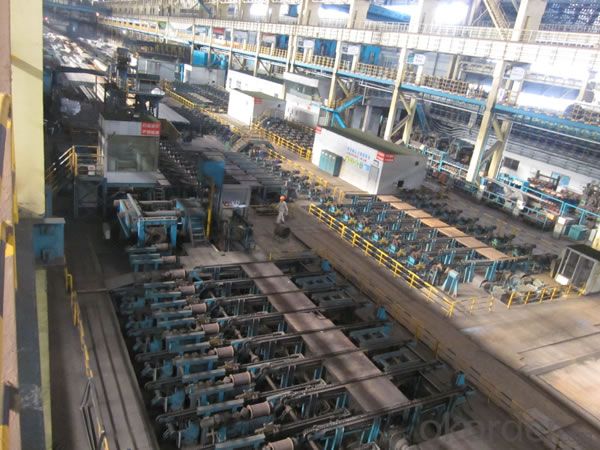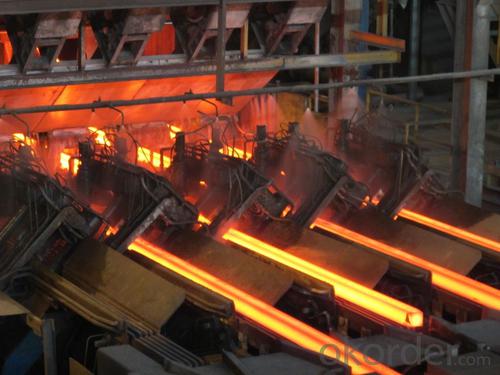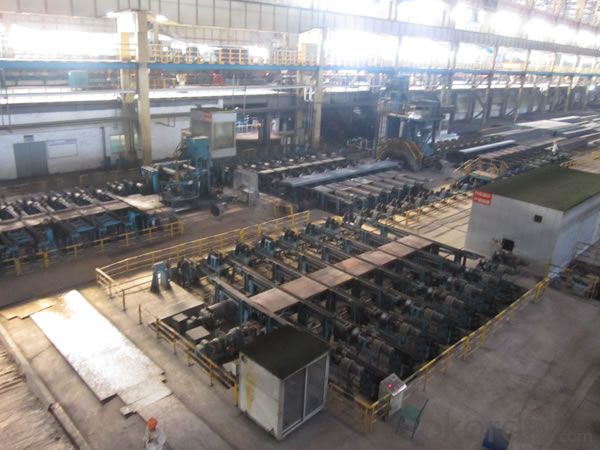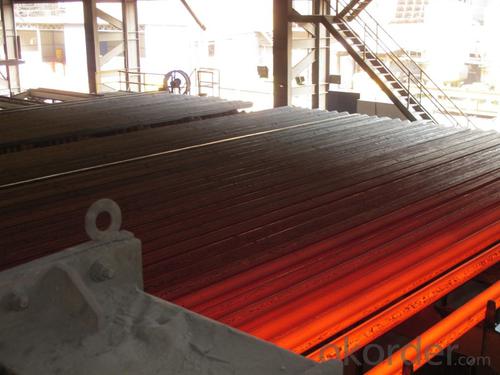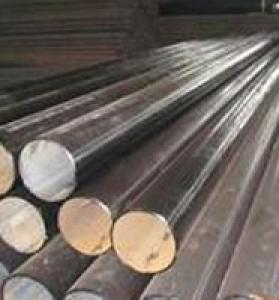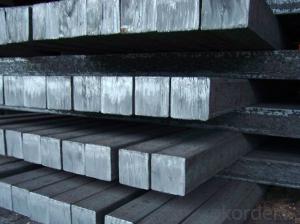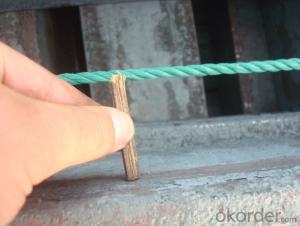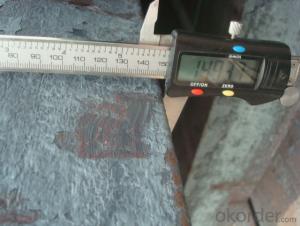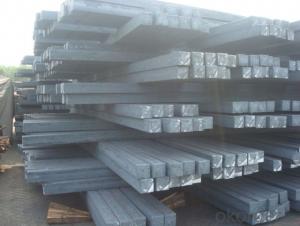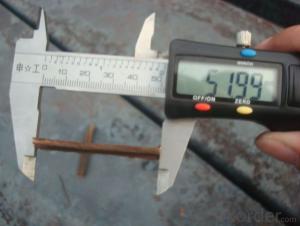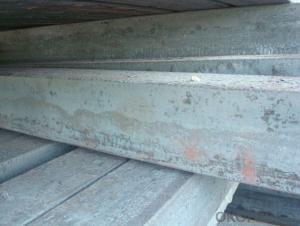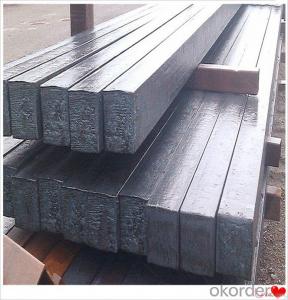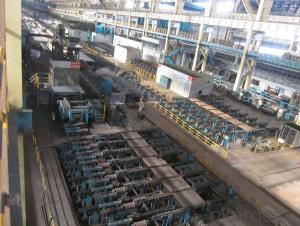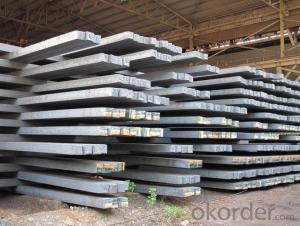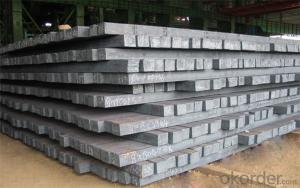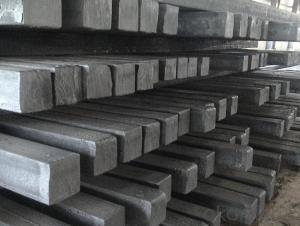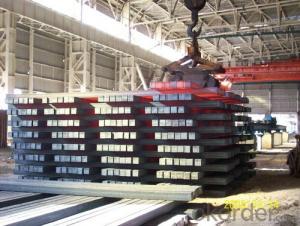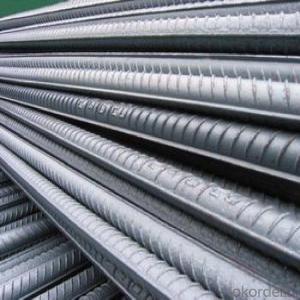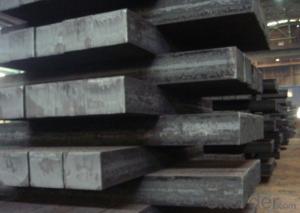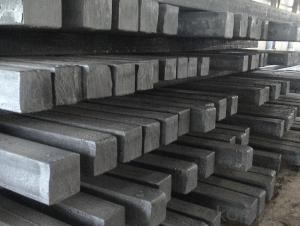Prime quality square alloy steel billet 95mm Q235
- Loading Port:
- Tianjin
- Payment Terms:
- TT OR LC
- Min Order Qty:
- 100 m.t.
- Supply Capability:
- 10000 m.t./month
OKorder Service Pledge
OKorder Financial Service
You Might Also Like
Structure of Prime quality square alloy steel billet 95mm Q235
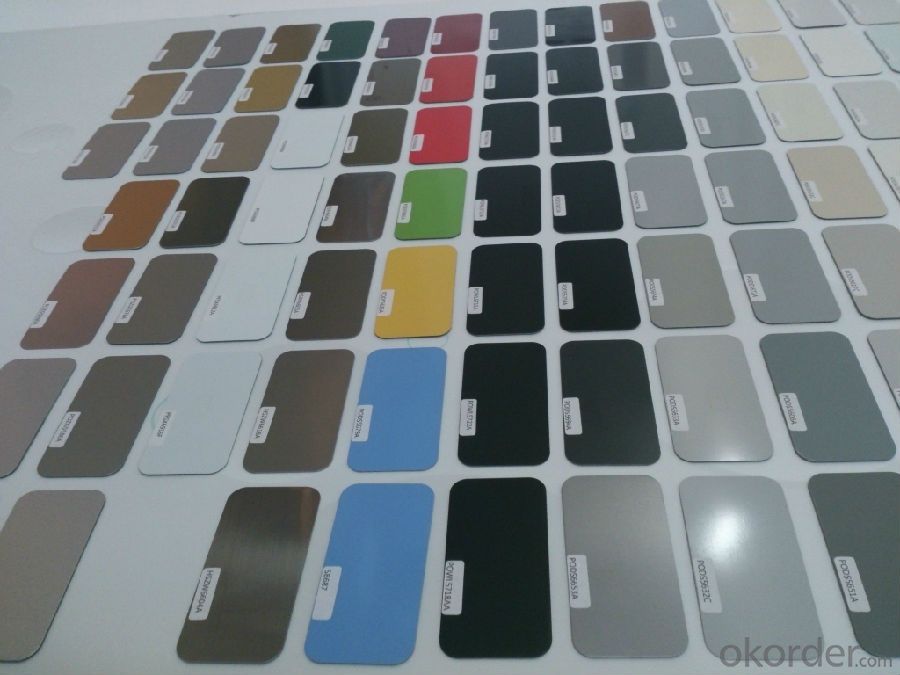
Description of Prime quality square alloy steel billet 95mm Q235
1. Prepainted steel coil is coated with organic layer, which provides higher anti-corrosion property and a longer lifespan than that of galvanized or galvalume steel sheets.
2. The base metals for prepainted steel coil consist of cold rolled, HDGI Steel, electro-galvanized and hot-dip alu-zinc coated steel. The finish coats of prepainted steel coil can be classified into groups as follows: polyester, silicon modified polyesters, polyvinylidene fluoride, high-durability polyester, etc.
3. The production process has evolved from one-coating-and-one-baking to double-coating-and-double-baking, and even three-coating-and-three-baking.
4. The color of the prepainted steel coil has a very wide selection, like orange, cream-colored, dark sky blue, sea blue, bright red, brick red, ivory white, porcelain blue, etc.
5. The prepainted steel coils can also be classified into groups by their surface textures, namely regular prepainted sheets, embossed sheets and printed sheets.
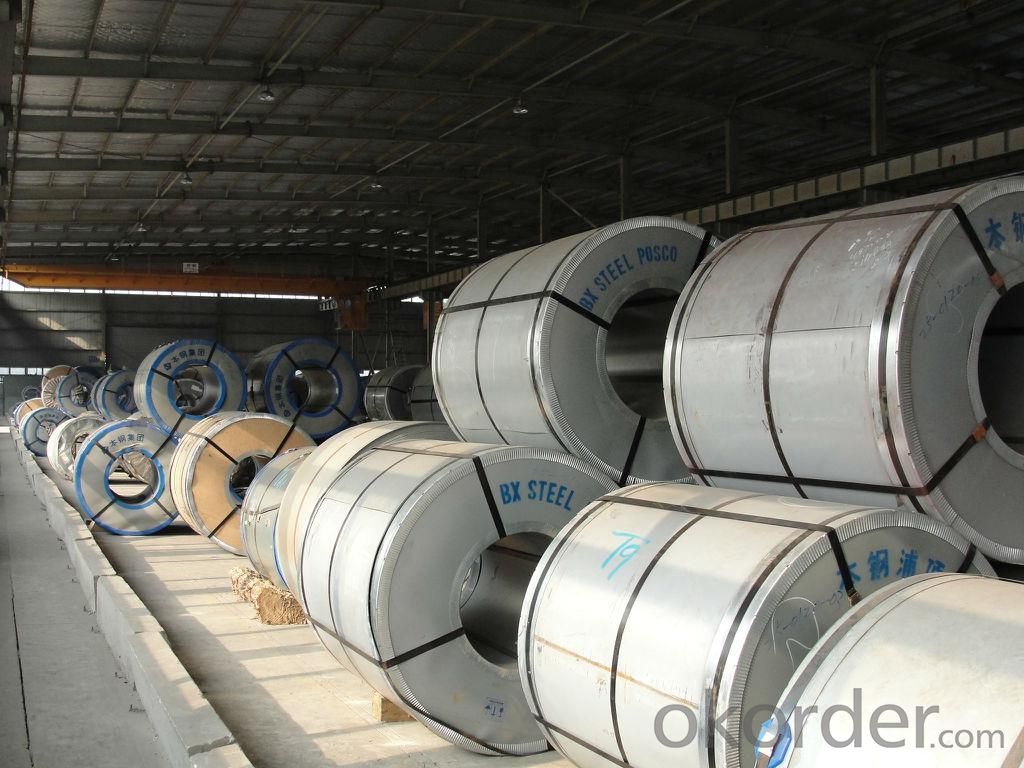
Main Feature of Prime quality square alloy steel billet 95mm Q235
Uncoated CR steel sheet
With the features of in line with the international highest standards in demension and shape, excellent surface finish and properties, the products are mainly used in home appliance and automobile industries.
Galvanized steel sheet(include HDG and EG)
With the features of good corrosion resistance, the products are mainly used in automobile, home appliance, electronics, building and machinery manufacture industries, etc.
Precoated steel sheet
With the features of enviromental protection and good processablility, long lasting surface durability, rich in colors, the products are maily used in building, home appliance and furniture industries, etc.
Applications of Prime quality square alloy steel billet 95mm Q235
Construction
Manufacture anticorrosion, industrial and civil architecture roof boarding, roof grille
Light industries
Home appliance's case, civil chimney, kitchen utensils
Auto industry
Corrosion resistant parts of cars
Agriculture
Food storage, meat and aquatic products' freezing and processing equipment
Commerce
Equipments to store and transport materials, and packing implements
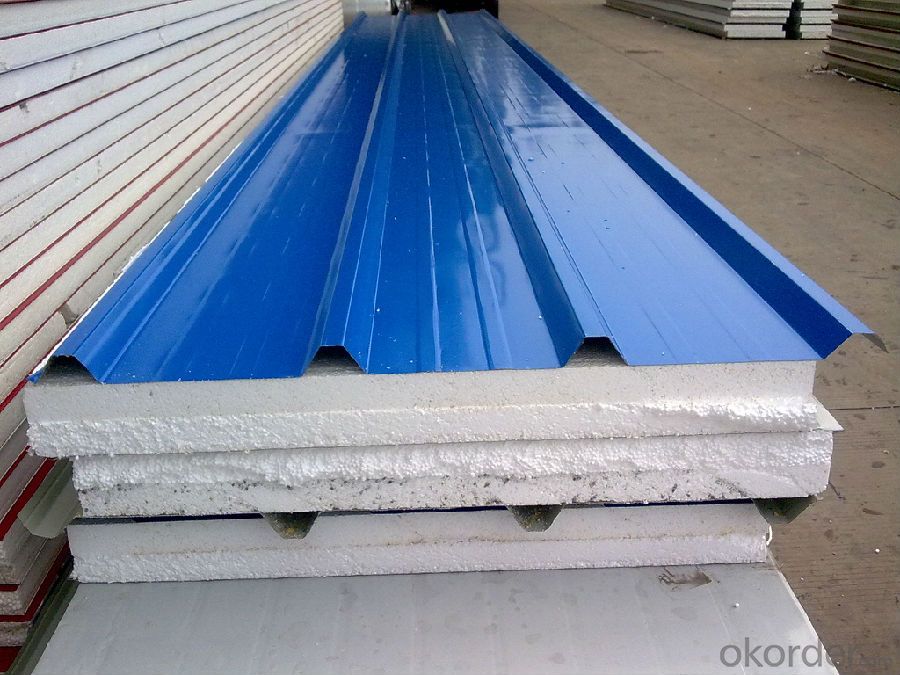
Specifications of Prime quality square alloy steel billet 95mm Q235
Product | Prime quality square alloy steel billet 95mm Q235 |
Material Grade | SGCC / SGCH / DX51D+AZ, etc |
Thickness | 0.6-3.0mm |
Width | 500-1500mm |
Tolerance | Thickness: +/-0.02mm , Width:+/-2mm |
Zinc-coating | Z30-150g/m2 |
Technique | Raw material: Hot rolled steel coil --> Cold rolled_>hot dipped galvalume |
Surface | Dried, Chromated, Unoiled |
Spangle | Regular spangle , small spangle, zero spangle |
ID | 508MM 610MM |
Coil weight | 1-25MT |
Export package | Cardboard inner sleeves, Waterproof paper, galvanized steel covered and steel strip packed |
FAQ of Prime quality square alloy steel billet 95mm Q235
We have organized several common questions for our clients,may help you sincerely:
1. How Can I Visit There?
Our company is located in Tianjin City, China, near Beijing. You can fly to Tianjin Airport Directly. All our clients, from home or aboard, are warmly welcome to visit us!
2. How Can I Get Some Sample?
We are honored to offer you sample.
3. Why choose CNBM?
Our delivery time about 15-20days for standard sizes, if you have other requirements like hardness, quanity and width ,it is about 20-40days. But don't worry we also try our best for the delivery time ,because time longer and our cost is higher.
- Q: What are the main factors affecting the tensile strength of steel billets?
- There are several main factors that affect the tensile strength of steel billets. Firstly, the composition of the steel plays a significant role. The presence of certain elements, such as carbon, manganese, and silicon, can greatly influence the strength of the steel. Carbon, in particular, is a key element in increasing the strength of steel through its ability to form strong interatomic bonds. Secondly, the heat treatment process employed during the production of steel billets is crucial. Heat treatment, such as quenching and tempering, can significantly enhance the tensile strength of the steel by manipulating its microstructure. Quenching involves rapidly cooling the steel, which creates a hardened structure, while tempering involves reheating the steel to a specific temperature to achieve the desired balance of hardness and toughness. Additionally, the grain size of the steel also affects its tensile strength. Fine-grained steel generally exhibits higher strength due to the increased number of grain boundaries, which act as barriers to dislocation movement. On the other hand, coarse-grained steel tends to have lower strength as it allows for easier dislocation movement. Moreover, the presence of impurities or defects in the steel can weaken its tensile strength. Inclusions, such as sulfur, phosphorus, and non-metallic inclusions, can act as stress concentration points and promote crack initiation, leading to reduced strength. Similarly, the presence of voids, porosity, or other structural defects can compromise the overall strength of the steel billets. Lastly, the processing conditions during the manufacturing of steel billets can affect their tensile strength. Parameters such as rolling and forging temperatures, deformation rate, and cooling rate can influence the resulting microstructure and, consequently, the strength of the steel. In conclusion, the main factors affecting the tensile strength of steel billets include the steel composition, heat treatment process, grain size, impurities or defects, and processing conditions. Understanding and optimizing these factors are crucial for producing steel billets with the desired mechanical properties.
- Q: What types of steel are commonly used for billets?
- There are several types of steel that are commonly used for billets, depending on the specific application and desired properties. One common type is carbon steel, which is an alloy of iron and carbon. Carbon steel billets are widely used because of their high strength, durability, and affordability. They are suitable for a variety of applications, including construction, automotive, and machinery industries. Another type of steel used for billets is alloy steel. Alloy steel billets are made by adding various alloying elements such as chromium, nickel, and molybdenum to carbon steel. These alloying elements enhance the strength, toughness, and corrosion resistance of the steel, making it suitable for more demanding applications like aerospace, oil and gas, and power generation. Stainless steel is also commonly used for billets, especially in applications where corrosion resistance is critical, such as in marine environments or food processing industries. Stainless steel billets are made by adding chromium and sometimes other elements like nickel or molybdenum to carbon steel. This combination of elements provides excellent resistance to corrosion, high temperatures, and chemicals. Finally, tool steel is another type of steel used for billets, primarily in the manufacturing of tools and dies. Tool steel billets are made with specific alloying elements like tungsten, vanadium, or cobalt, which give them exceptional hardness, wear resistance, and heat resistance properties. These billets are essential for producing precision tools and components used in industries such as automotive, aerospace, and manufacturing. In summary, the types of steel commonly used for billets include carbon steel, alloy steel, stainless steel, and tool steel. The choice of steel depends on the specific application requirements, such as strength, corrosion resistance, or hardness.
- Q: What is the role of steel billets in the manufacturing of agricultural machinery?
- The manufacturing process of agricultural machinery relies heavily on steel billets, which are semi-finished steel products cast into a rectangular shape. These billets serve as the raw material for various components and parts. The utilization of steel billets presents numerous advantages in the production of agricultural machinery. Firstly, steel's exceptional strength and durability make it an ideal material for heavy-duty machinery that operates under harsh conditions. By starting the manufacturing process with steel billets, the final products acquire the necessary strength and durability to withstand the demands of agricultural activities. Moreover, steel billets offer versatility in design and fabrication. Agricultural machinery requires components of different shapes and sizes, and steel billets can be easily molded and machined to meet these requirements. This flexibility allows manufacturers to produce complex parts that are crucial for the efficient operation of agricultural machinery. Additionally, steel billets ensure consistent and reliable quality. The manufacturing process of steel billets adheres to strict quality control measures, ensuring uniformity and compliance with industry standards. This consistency in quality translates into reliable performance and longevity of agricultural machinery, reducing the need for frequent repairs or replacements. Furthermore, steel billets possess excellent resistance to corrosion and wear, which is vital for agricultural machinery exposed to various environmental elements. Using steel billets guarantees that the final products can endure exposure to moisture, chemicals, and abrasive materials commonly encountered in agricultural settings. To sum up, the strength, durability, versatility, consistent quality, and resistance to corrosion and wear make steel billets indispensable in the manufacturing of agricultural machinery. By employing steel billets as the raw material, manufacturers can produce agricultural machinery that meets the demanding requirements of the industry, ensuring reliable and efficient performance in various farming applications.
- Q: What is the role of steel billets in the shipbuilding industry?
- The shipbuilding industry relies heavily on steel billets as they are the primary material used to build the structural components of ships. These billets, which are semi-finished steel products, are made by casting molten steel into rectangular shapes that can be further processed into various shipbuilding parts. Using steel billets in shipbuilding offers several advantages. Firstly, they are known for their high strength and durability, making them ideal for withstanding the intense stress and harsh conditions ships face, such as waves, corrosion, and extreme temperatures. This ensures the structural integrity and longevity of the vessel. In addition, steel billets have excellent weldability, which is crucial in shipbuilding as ships have numerous welded joints. The ease and reliability of welding steel billets allow for efficient and cost-effective construction methods, reducing both time and labor required. Furthermore, steel billets provide versatility in ship design. They can be easily shaped and fabricated into different forms and sizes, enabling shipbuilders to create complex structures that optimize space utilization and enhance functionality. This flexibility in design allows for the construction of various types of ships, from cargo vessels and tankers to cruise ships and naval vessels. Moreover, steel billets have excellent resistance to corrosion, which is essential for ships constantly operating in corrosive marine environments. The high-quality steel used in billets protects against rust and deterioration caused by seawater, ensuring the safety and longevity of the vessel. Overall, steel billets are crucial in shipbuilding as they provide the necessary strength, weldability, versatility, and corrosion resistance required for constructing durable and seaworthy ships. Their use as the primary raw material allows for the creation of reliable and efficient vessels capable of withstanding the challenging conditions of the maritime environment.
- Q: How do steel billets contribute to the overall recyclability of a structure?
- The overall recyclability of a structure is greatly enhanced by steel billets, which play a vital role. These semi-finished steel products are created by melting iron ore and other raw materials in a blast furnace. Steel billets possess various characteristics that contribute to a structure's recyclability, thanks to their composition and manufacturing process. Foremost, steel is one of the most recycled materials worldwide. Steel billets can be recycled endlessly without compromising their quality or integrity. Consequently, when a structure reaches the end of its lifespan, the steel components can be effortlessly dismantled, and the steel billets can be melted down to produce new steel products. This ability to recycle steel billets reduces the necessity for extracting and refining new iron ore, thereby conserving natural resources and minimizing the environmental impact associated with mining activities. Moreover, the recycling process of steel billets requires significantly less energy compared to producing steel from raw materials. Recycling steel billets consumes around 75% less energy than manufacturing steel from scratch. This energy efficiency not only reduces greenhouse gas emissions but also contributes to cost savings during the manufacturing process. By utilizing recycled steel billets in structure construction, we can mitigate the carbon footprint and promote sustainable practices within the construction industry. Additionally, the utilization of steel billets in structures provides practical advantages. Steel is renowned for its strength, durability, and resilience, making it an ideal material for constructing robust and long-lasting structures. By incorporating steel billets, structures can be designed to withstand various environmental conditions, such as earthquakes and hurricanes, guaranteeing the safety and longevity of the building. This aspect of longevity is crucial in terms of recyclability since it allows the structure to fulfill its purpose for an extended period before being recycled. In conclusion, steel billets significantly contribute to a structure's overall recyclability. Their ability to be recycled endlessly, reduced energy consumption during the recycling process, and practical advantages like strength and durability make steel billets an exceptional choice for constructing sustainable and recyclable structures. By incorporating steel billets, we can foster a circular economy, conserve natural resources, reduce emissions, and create a more sustainable future for the construction industry.
- Q: How do steel billets contribute to the manufacturing of renewable energy equipment?
- Steel billets play a significant role in the manufacturing of renewable energy equipment. These billets, which are semi-finished metal products, are used as raw materials in the production of various components and structures that are essential for renewable energy systems. Firstly, steel billets are used in the construction of wind turbines. The towers that support the wind turbines are typically made of steel, and these towers require large quantities of steel billets to be manufactured. The billets are used to create the tower sections, which are then assembled to form the tall structures that hold the wind turbines. Additionally, steel billets are also used for the production of other wind turbine components such as rotor hubs and nacelles, which house the generator and other crucial parts of the turbine. Furthermore, steel billets are instrumental in the manufacturing of solar energy equipment. Solar panels, which harness sunlight to generate electricity, rely on steel structures to support and secure the panels. Steel billets are used to construct the frames and mounting systems that hold the solar panels in place, ensuring their stability and longevity. These steel structures are crucial in enabling solar panels to be installed on various surfaces such as rooftops, fields, and even floating platforms. In addition to wind turbines and solar panels, steel billets are utilized in the production of other renewable energy equipment as well. For instance, hydroelectric power plants require steel components such as penstocks, which are large pipes that carry water to the turbines, and steel billets are used in their manufacturing. Similarly, steel billets are used in the construction of biomass power plants, where they are utilized to create the structures that house the biomass boilers and generators. Overall, steel billets are vital in the manufacturing of renewable energy equipment, as they are used to create the structures, components, and supports that are necessary for the functioning of wind turbines, solar panels, hydroelectric power plants, and biomass power plants. The use of steel billets ensures the durability, strength, and reliability of these renewable energy systems, thus contributing to the growth and success of the renewable energy sector as a whole.
- Q: Can steel billets be used for making kitchen utensils?
- No, steel billets cannot be directly used for making kitchen utensils. Steel billets are semi-finished steel products that need to go through various processes like rolling, forging, and shaping to be transformed into the desired utensil shapes.
- Q: What are the different machining processes for steel billets?
- There are several machining processes that can be used for steel billets, depending on the desired outcome. Some common machining processes for steel billets include turning, milling, drilling, and grinding. Turning involves rotating the billet against a cutting tool to remove material and create a desired shape. Milling involves using a rotating cutter to remove material from the billet, typically in a perpendicular or angled direction. Drilling involves creating holes in the billet using a drill bit. Grinding involves using an abrasive wheel to remove material and create a smooth surface finish on the billet. These machining processes can be combined or used individually to achieve the desired shape, dimensions, and surface finish for the steel billet.
- Q: How are steel billets used in the manufacturing of bearings?
- Steel billets are used in the manufacturing of bearings as they serve as the raw material for producing the inner and outer rings of the bearings. These billets are heated, shaped, and machined to form the desired shape and dimensions of the rings, which are then assembled with balls or rollers to create the final bearing product.
- Q: What are the different types of casting processes used for shaping steel billets?
- There are several types of casting processes used for shaping steel billets. Some of the common ones include continuous casting, ingot casting, and centrifugal casting. Continuous casting involves pouring molten steel into water-cooled molds to create a continuous strand of solidified steel. Ingot casting involves pouring molten steel into individual molds to create solidified ingots. Centrifugal casting utilizes centrifugal force to pour molten steel into a rotating mold, resulting in a cylindrical shape. These casting processes offer different advantages and are used depending on the specific requirements of the steel billet shaping process.
Send your message to us
Prime quality square alloy steel billet 95mm Q235
- Loading Port:
- Tianjin
- Payment Terms:
- TT OR LC
- Min Order Qty:
- 100 m.t.
- Supply Capability:
- 10000 m.t./month
OKorder Service Pledge
OKorder Financial Service
Similar products
Hot products
Hot Searches
Related keywords
